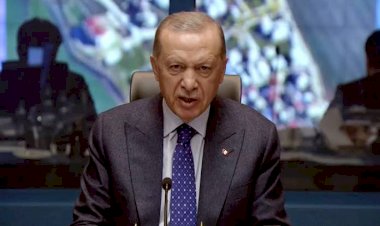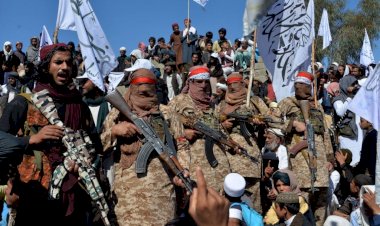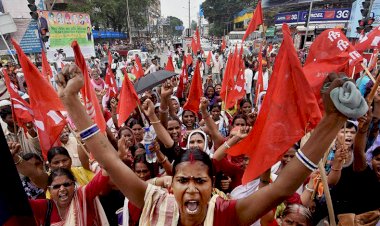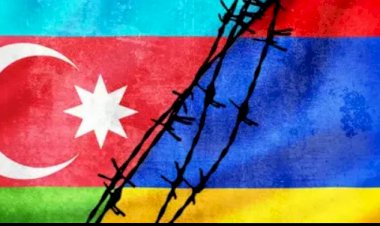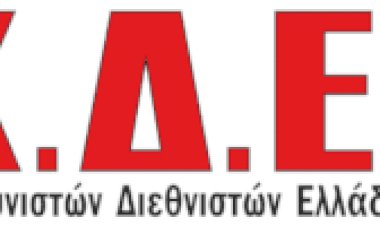Why Has the AKP Intensified Authoritarianism?
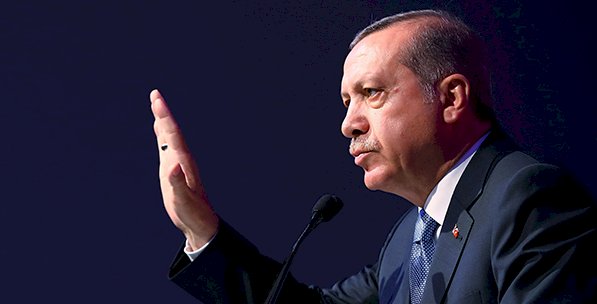
For years, there has been an ongoing debate about whether Turkey’s political system could evolve into an authoritarian regime resembling Russia or Iran. In our past assessments, we have outlined the barriers preventing Turkey from becoming an outright dictatorship. We explained this through the resilience of social opposition in Turkey along with the structural characteristics of Turkey’s capitalist economy and its position in the global order. Unlike Russia or Iran, Turkey’s capitalist economy is not based on natural resources. In those countries, authoritarian regimes are financed by oil and gas revenues, enriching the oligarchic bourgeoisie with easy money. Turkey, however, lacks such a financial cushion. Turkish capitalism is reliant on international capital inflows and fully integrated into global capital circulation; it has obligations such as producing, attracting investment, trading, finding external financing, and attracting tourists. The main economic partners of Turkey’s bourgeoisie are Western bloc countries, primarily those in Europe.
In this context, while the AKP government has at times sought closer ties with Russia and clashed with Europe and the U.S., we have consistently argued that it could never fully detach itself from Western imperialism. The extent of AKP’s authoritarian moves was always constrained by this dynamic. After all, Western imperialism has historically justified itself through the rhetoric of defending democracy and human rights against authoritarian regimes like Russia, China, Iran, and North Korea. The political and cultural hegemony of Western capitalism is primarily tied to its claims of being the “land of freedom” or the “cradle of democracy.” Thus, efforts were made to maintain that particular façade in Turkey, a Western ally. Erdoğan, therefore, could not entirely dismantle this structure. Besides, Turkey’s ruling class has historically aligned itself with the West, always seeking its place in Europe. Despite its flaws, the country had a functioning parliamentary tradition.
Today, however, the imperialist world system is going through a serious crisis. Since the 2008 financial crisis, the capitalist system has been unable to formulate a new accumulation strategy. Low rates of profitability have blocked capital accumulation processes. In response to the historical decline of US imperialism vis-à-vis China, the growing economic inequalities in the imperialist centers, and the crisis of the system, the monopoly capitalist fractions began to support authoritarian-far-right tendencies as a way to deal with the collapse of the neoliberal order.
The Trumpian World
We now live in a "Trumpian world." The Western bloc is shifting away from its emphasis on democracy and human rights and moving toward authoritarianism. The current U.S. administration is actively supporting far-right movements in Europe, and liberal parliamentary systems are weakening. The legitimacy mechanisms built on democratic ideals are being abandoned, state apparatuses are being reshaped according to the interests of authoritarian capitalist blocs, and authoritarian tendencies are on the rise globally.
We have begun to feel the direct effects of this global transformation in Turkey. We have entered a new phase where the AKP government no longer feels the need to maintain a democratic appearance or fear international pressure for its authoritarian moves. The deepening crisis of the capitalist system and the increasing authoritarianism in imperialist centers have emboldened the AKP regime. Turkey’s big bourgeoisie, which has historically relied on the state for its survival, cannot intervene in these developments without significant external support. Turkey's big bourgeoisie recently issued a series of limited criticisms. The leaders of TÜSİAD—the major bourgeois organization voicing its “concerns” about education, law, and economic indicators—were detained and their images circulated. Although the AKP endorsed this symbolic act, demonstrating that anyone who speaks out will face repression, there is never any real threat to the big bourgeoisie. Erdoğan bans workers' strikes for them, arrests unionists and an unbridled paradise of exploitation reigns for capital. In this situation, they have no choice but to passively watch as the democratic constitutional framework, however shattered, is dismantled for the sake of corruption, nepotism, and arbitrariness—while trying to seize a share of the spoils. Their class existence necessitates it.
Under these conditions, we are entering a period where authoritarianism is escalating to a new level. The US ruling class, the hegemonic power of the world, or at least part of it, is actively working to dismantle liberal checks and balances. A tendency hostile to workers' rights and social freedoms leads the US ruling class to a far-right authoritarian tendency at home, while a unilateral aggressive foreign policy that does not recognize the rules of international law is another result of this line.
AKP Never Misses the Opportunity
This global shift presents a strategic opportunity for Turkey’s far-right AKP-MHP coalition. It sees the moment as an ideal time to suppress social opposition, curb press freedoms, and even crack down on parliamentary opposition. The AKP regards electoral democracy as an unnecessary luxury. Yet, AKP remains under constant pressure from the possibility of losing elections. There is a sociological shift in Turkey, led by the major cities. The growing tendency of new generations to turn away from the AKP, the impoverishment of the lower classes due to the economic crisis, and the emergence of strong figures within the bourgeois opposition CHP are heightening the AKP's anxiety about the future. At this point, unfortunately, we must acknowledge that the organized labor movement and socialists have not yet played a sufficiently effective role in opposing the AKP.
In the 2024 local elections, the AKP suffered significant losses, enabling the CHP to gain control of key state resources—an outcome that is difficult for the AKP to accept. Ultimately, for the AKP, a functioning electoral democracy has become an intolerable obstacle. It is now moving beyond suppressing street protests and the Kurdish national movement—it seeks to silence journalists and even the CHP, aiming to eliminate all forms of criticism. This marks a peak in Turkey’s authoritarian trajectory.
Previously, Western pressure for democracy and human rights set some limits on Turkey’s authoritarian shift. However, today, with the Western bloc ruled out by unilateral U.S. actions, Europe weakened, and the broader West itself embracing authoritarianism, the AKP now enjoys significantly more leeway. Internationally, the AKP is treading cautiously due to the hardline stance of the U.S.-Israel axis; domestically, it is exploiting this new global climate to intensify its strategy of repression and fear. Consequently, Turkey's authoritarian trajectory has entered a new phase, further reinforced by international dynamics. Turkey’s authoritarian turn is not merely a product of internal dynamics but is evolving in tandem with global political shifts.
Given this reality, it is essential to stand firm, persist in resistance, strengthen solidarity networks, and continue the struggle under all circumstances to lay the foundation for the future. The social opposition in these lands has deep roots, having endured hardships and withstood difficult tests throughout history. To resist is to claim the future.
1- Russia, Malaysia, Afghanistan… What will happen? What will not? (2016) https://socialistmiddleeast.com/russia-malaysia-afghanistan-what-will-happen-what-will-not
Related:
https://socialistmiddleeast.com/the-akp-government-is-intensifying-its-repression-against-opposition
https://socialistmiddleeast.com/great-solidarity-with-the-sep



